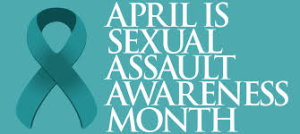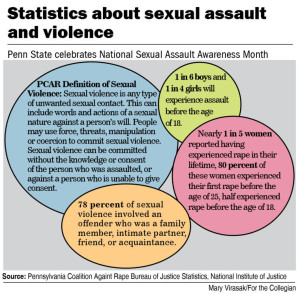Sexual Assault Awareness Month (SAAM) is an annual campaign to raise public awareness about sexual assault and educate communities and individuals on how to prevent sexual violence. It is observed in April.
Each year during the month of April, state, territory, tribal and community-based organizations, rape crisis centers, government agencies, businesses, campuses and individuals plan events and activities to highlight sexual violence as a public health, human rights and social justice issue and reinforce the need for prevention efforts.
Prevent sexual assault before it starts.
Sexual violence is a hard topic to many to be able to talk about if not at least awkward to many. Yet sexual assault is a very serious public health problem that affects millions of women and men that the public should be made aware about.
In the United States, 1 in 5 women have experienced completed or attempted rape, and about 1 in 15 men have been made to penetrate someone in their lifetime. Most victims first experienced sexual violence before age 25.
Statistics underestimate the problem because many victims do not tell the police, family, or friends about the violence.
Our ultimate goal is to call attention to and stop sexual violence before it begins.
Sexual violence also includes
- Unwanted sexual contact
- Non-contact, unwanted sexual experiences (such as verbal sexual harassment)
Sexual violence can be committed by anyone.
- A current or former intimate partner
- A family member
- A person in position of power or trust
- A friend or acquaintance
- A stranger, or someone known only by sight
Sexual violence impacts health in many ways and can lead to long-term physical and mental health problems. For example, victims may experience chronic pain, headaches, and sexually transmitted diseases. They are often fearful or anxious and may have problems trusting others. Anger and stress can lead to eating disorders, depression, and even suicidal thoughts.
The key is PREVENTION:
How?
- Define the problem.
- Identify risk and protective factors.
- Develop and test prevention strategies.
- Assure widespread adoption.
- The ultimate goal is to stop sexual violence before it begins.
For further info. go to the internet covering this topic in more detail like the National Sexual Violence Resource Center or MAYO clinic or CDC.

